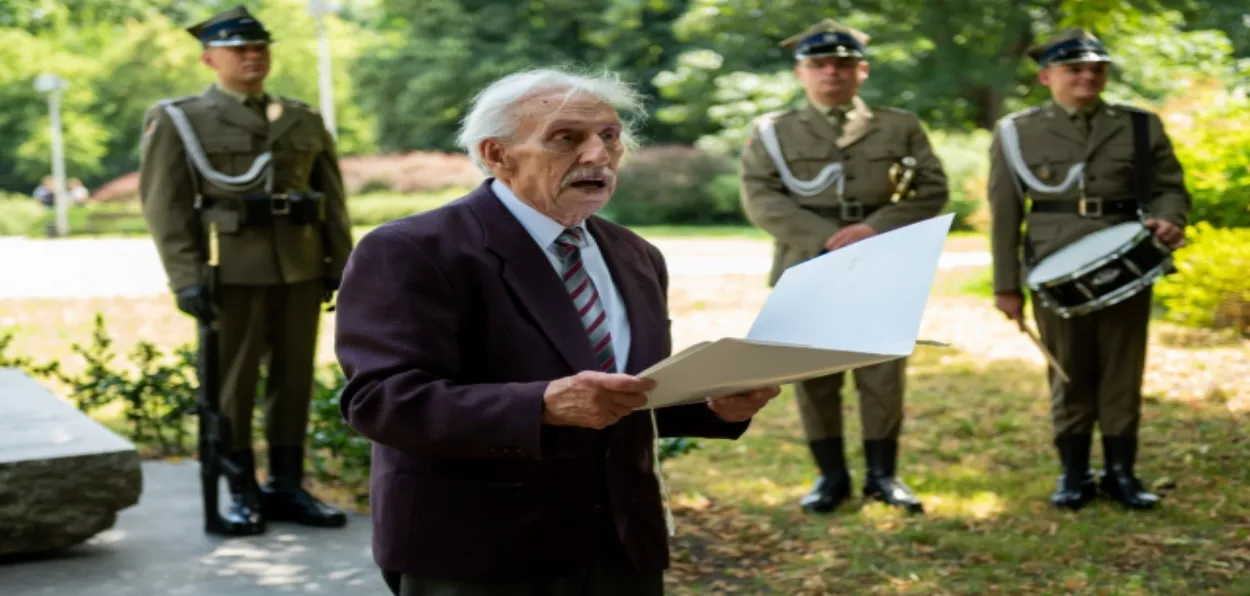
New Delhi
As Prime Minister Narendra Modi paid floral tributes to three memorials in Warsaw – two of them representing the memory of two Indian Royal families, who helped a big group of Polish Jews fleeing from world war two and persecution in Europe in the mid-forties, got revived.
Jamsaheb Shatrusalyasinhji Jadeja, scion of the Jamnagar royal family, thanked Prime Minister Narendra Modi for interacting with his “extended family” in Poland and paying tribute at the Jamsaheb of Nawanagar Memorial in Warsaw.
PM Modi's "thoughtful gesture," he said in a written statement, reflects the spirit and humanity that mirrors the 'Good Maharaja' Digvijaysinhji Ranjitsinhji Jadeja.
Prime Minister Modi, who arrived in Warsaw on Wednesday, paid tribute at The Dobry Maharaja Memorial in Warsaw that honours the Jamsaheb of Nawanagar Digvijaysinhji Ranjitsinhji Jadeja's remarkable act of kindness during World War-II.
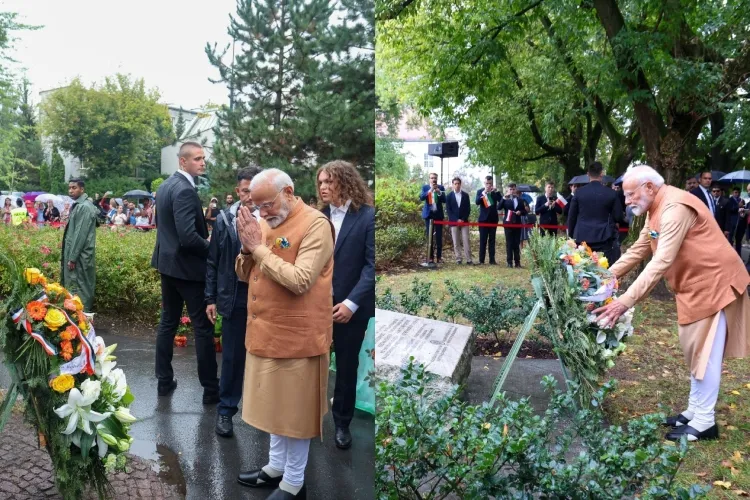 Prime Minister Narendra Modi paying tribute at The Dobry Maharaja Memorial (Left) and Kolhapur Royal family memorial in Warsaw
Prime Minister Narendra Modi paying tribute at The Dobry Maharaja Memorial (Left) and Kolhapur Royal family memorial in Warsaw
The statue was built in recognition of Dobry (Good) Maharaja's compassionate gesture of providing hundreds of Polish children refuge during the Second World War which remains as one of the most evocative chapters in the relations between India and Poland and has had a lasting impact on ties between the two countries.
He also mentioned that in order to build on the legacy and further strengthen the historical connect between the people of India and Poland he has requested the Prime Minister to consider setting up a youth, student and cultural exchange between the two countries.
As PM Modi arrived in Warsaw, the 'Indian Poles' are commemorating a historic facet of India-Poland relations which has been bedrock of the people-to-people ties between the two countries since the Second World War.
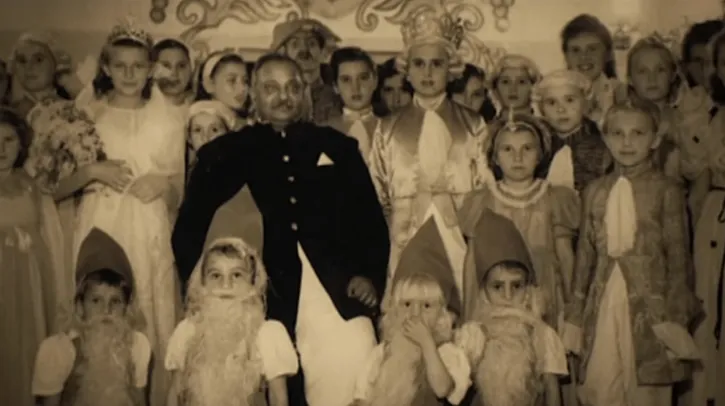
Maharaja Digvijaysinhji Ranjitsinhji Jadeja with his Polish children
"One of the unique bonds between our countries relates to the time in the 1940s, during World War II, when more than 6,000 Polish women and children found refuge in two princely states in India, Jamnagar and Kolhapur. As you may be aware, Jam Sahib of Navanagar had provided shelter to more than 1,000 Polish children, and others were offered refuge in Kolhapur," Tanmaya Lal, Secretary (West) at the Ministry of External Affairs (MEA) said earlier this week.
Modi is the first Prime Minister to visit Poland in the past 45 years.
While Digvijaysinhji Ranjitsinhji Jadeja, the Jamsaheb of Nawanagar who is known in Poland as the 'Good Maharaja', gave refuge to over 1,000 Polish children in the famous Balachadi camp, the Royal Family of Kolhapur provided safe haven to more than 5,000 Polish women and children in the equally-famous Valivade camp.
A monument, commemorating Jam Saheb Digvijaysinhji Ranjitsinhji Jadeja, was unveiled in October 2014 at the Square of the Good Maharaja, Ochota District in Warsaw.
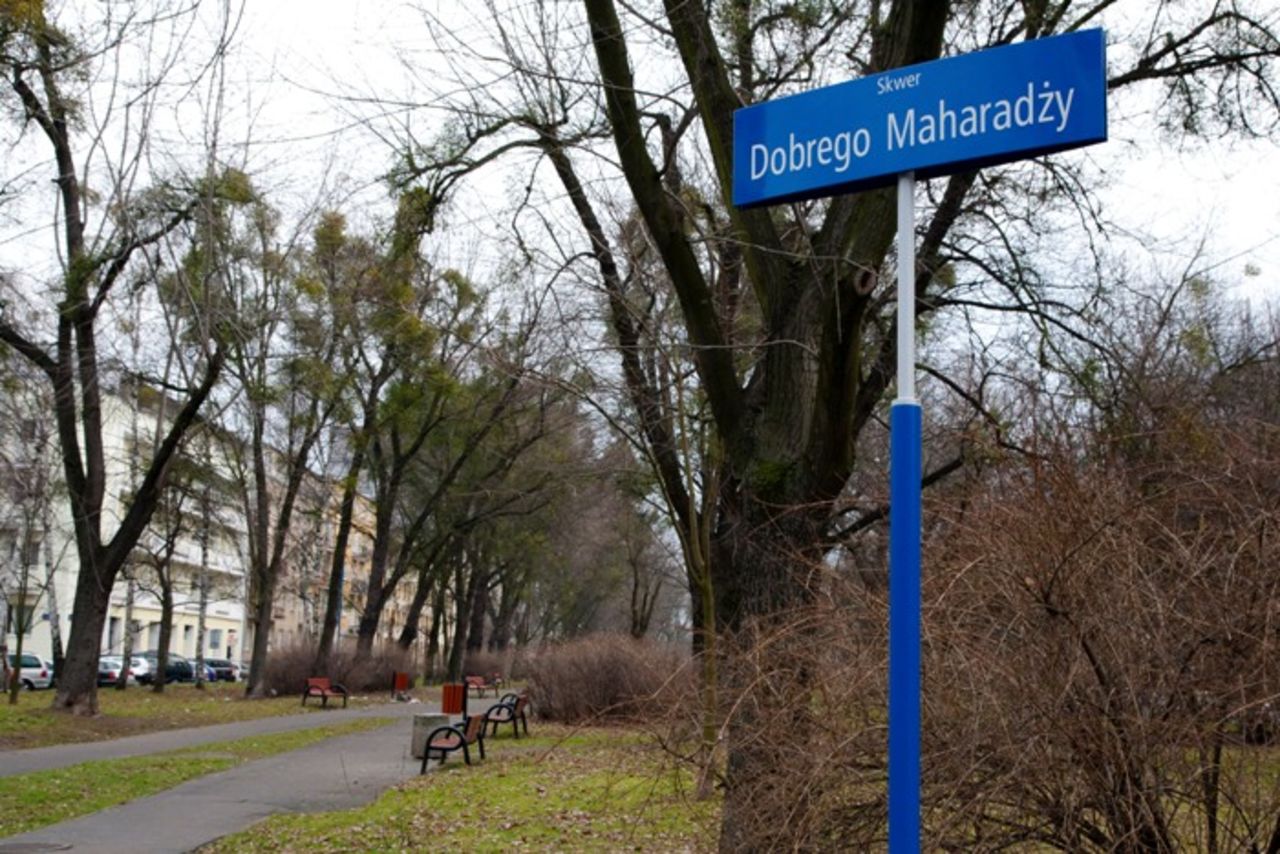 A signboard to Good Maharaja Square in Warsaw
A signboard to Good Maharaja Square in WarsawAnother plaque commemorating the Valivade-Kolhapur camp near the Monte Casino War Memorial was inaugurated in November 2017 in Warsaw. As many as eight Polish primary and secondary schools are also named after Jam Saheb.
A large number of Polish refugees and their descendants have, over the last many decades, expressed their gratitude towards the two royal families of India by building memorials in Warsaw and organising annual events to keep the memories alive.
The Association of Poles in India, which reunites all the Polish who lived between 1942 and 1948 in the two camps set up by the Maharajas of Jamnagar and Kolhapur, meets once in two years to recall and reiterate their gratitude and affection for the two royal families and the people of India.
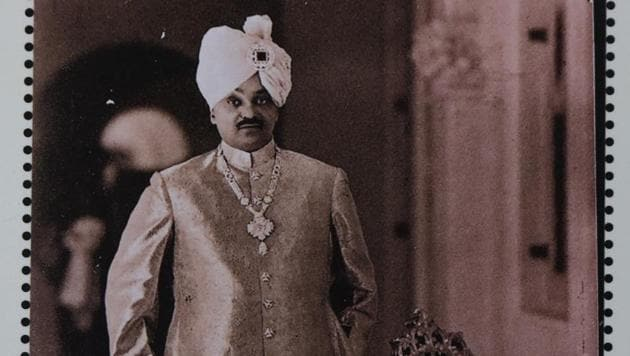 A Picture of Maharaja Digvijaysinhji Ranjitsinhji Jadeja clicked by his 'child' Wiesław Stypuła. Stypula died in Warsaw in May 2024
A Picture of Maharaja Digvijaysinhji Ranjitsinhji Jadeja clicked by his 'child' Wiesław Stypuła. Stypula died in Warsaw in May 2024
It may be recalled that India was facing a drought and was in the middle of a national struggle for freedom at the time of the Polish Jews being given shelter by the two royal families.
The British rulers had first disallowed the rickety ship carrying 1000 orphans with some women to land at the Bombay Port.
The Maharaja not only arranged special cooks to make food for the children but also adopted them as his children to browbeat the British who had objected to the stay of foreigners. The British were afraid of Germany led by Adolf Hitler who was infamously
ALSO READ: A King’s generosity behind Poland’s gesture to Indians fleeing Ukraine
The children called Maharaja Bapuji (Father in Gujarati) and he arranged for their education and even made them stay in his summer palace till their quarters were being constructed.
